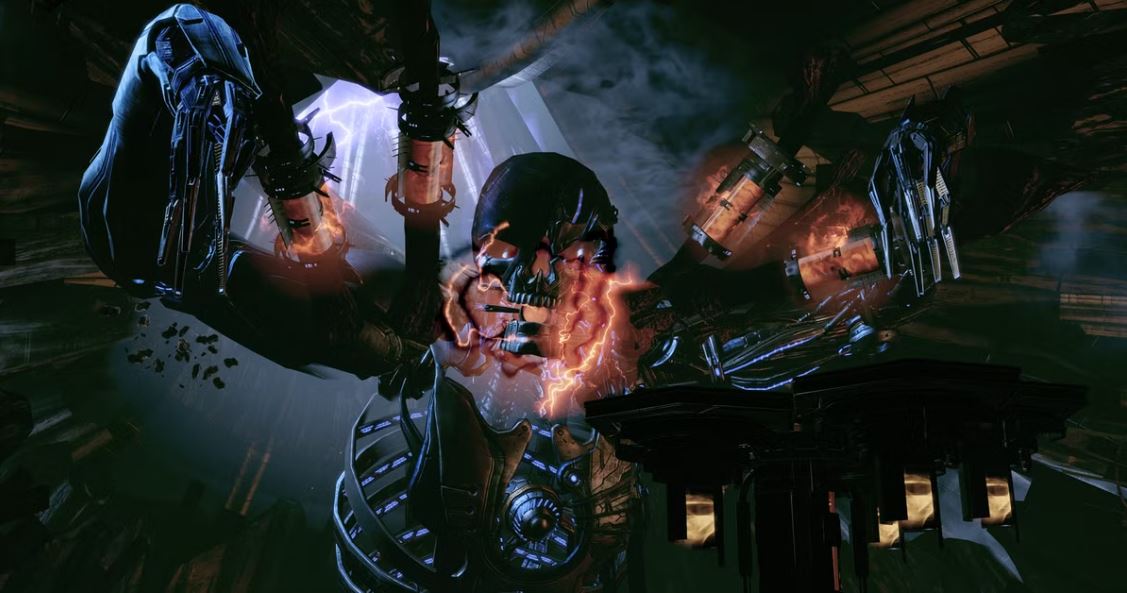-
War Assets Affect the Crucible
In Mass Effect 3, your Effective Military Strength (EMS) influences the outcome of the Crucible. But narratively, arranging armies and allies shouldn’t change the Crucible’s inherent power. Yet with low EMS, catastrophic consequences happen; with high EMS, Shepard nearly survives. -
Cerberus Only Studies the Human-Reaper
The Illusive Man obsesses over the Human-Reaper core, without investigating fully intact Reaper bodies (e.g. on Rannoch). It’s inconsistent that Cerberus doesn’t pursue those richer sources of Reaper biology. -
Sovereign Says the Reapers Have No Beginning
In Mass Effect 1, Sovereign claims the Reapers are infinite, without beginning or end. This conflicts with Mass Effect 3, where the Leviathans created the Catalyst and then the Reapers. -
Shepard’s Resurrection
Shepard is resurrected by the Lazarus Project after nearly dying. But the wider implications—medical, political, ethical—of such a technology are never explored meaningfully in the galaxy’s response.
15 Glaring Plot Holes in Mass Effect -
The Reapers’ Purpose
The Catalyst claims the Reapers harvest advanced civilizations to prevent synthetic vs organic conflict. But Reapers themselves are synthetics, and destroy organic life. The logic seems self-contradictory, especially since even the Reapers’ creators are sometimes targeted. -
Saren’s Death Disables Sovereign
When Saren dies, Sovereign loses shields and gets destroyed—even though others with Reaper implants (like The Illusive Man) don’t suffer similar fate at same moment. -
Building the Breeder
If the Rachni Queen was spared in Mass Effect 1, the Reapers later use “Breeders” in Mass Effect 3. The method of constructing the Breeder (cutting pieces off Rachni children, etc.) is vague and contradicts prior plot. Also the Queen could still be alive, making replacement unnecessary. -
Shepard Trusts Legion Too Easily
Despite Geth being enemies in the first game, Legion becomes trusted quickly. Shepard accepts Legion despite recollections of Geth supporting Reapers, which seems to underplay the risk and distrust built in earlier games. -
Anderson and The Illusive Man on the Citadel
At the climax, Anderson somehow reaches the Citadel, communicates via radio with Shepard, while supposedly nobody else is there, and the Alliance acts as if no one has reached it. The logistics and timing are murky. -
The Mass Relays Explode
In the Arrival DLC, damage to a Mass Relay causes massive, system-wide destruction. But in ME3, if many mass relays explode (low EMS outcome), the galaxy survives in many ways that contradict earlier devastation shown. -
Cerberus Acquires the Human-Reaper Regardless of Your Choice
Whether you destroy or save the Collector Base in Mass Effect 2, in ME3 parts of the Human-Reaper still show up in Cerberus possession. Choice should matter more here than seems to do. -
The Genophage Cure on Virmire Must Be Destroyed
On Virmire, the cure for the genophage is presented as a weapon, and destroying the data is forced—yet logically, destroying knowledge that might help future cure seems contradictory. -
The Catalyst Lets You Destroy the Reapers
Even though the Reapers are claimed to be necessary, the Catalyst gives Shepard the option to destroy them entirely. This contradicts earlier statements about the Reapers’ essential role in preserving galactic order. -
Inconsistent Attitudes Toward Saving the Collector Base
After the Collector Base mission, no matter which choice you make, many squadmates have uniform reaction praising or blaming you, ignoring that some supported the opposite in the mission. -
The Galaxy Trusts the Crucible
The Crucible is an advanced artifact of unknown origins. Despite evidence that it may be tied to the Reapers, many races trust it unquestioningly. Given previous Reaper tricks, this level of trust seems unrealistic.
Check Also
789club Casino Download: Complete Guide to Installing and Enjoying Seamless Mobile Gaming
Access to online gaming has become more convenient than ever thanks to mobile technology. For …
 mulberrybagsmulberryhandbags
mulberrybagsmulberryhandbags